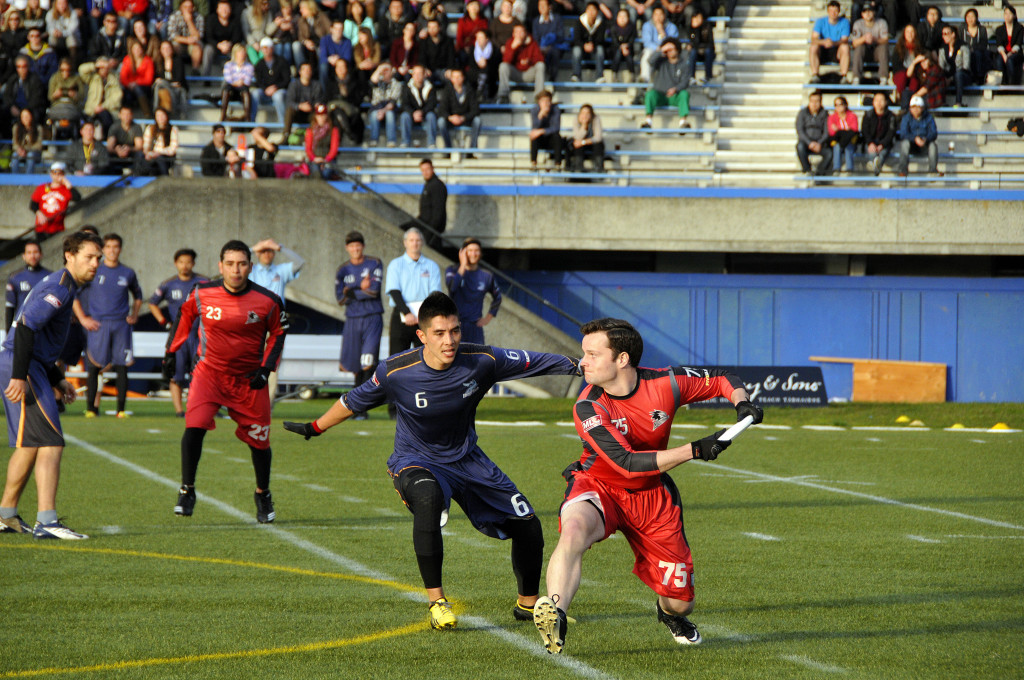Popular disc sport becoming legitimate
By Cazzy Lewchuk, Staff Writer
The other day, I was watching some teenagers at the park play with a flying disc. As I watched it glide around, I wondered just why ultimate seems to be getting bigger and bigger. Then it hit me.
It’s a common sight on high school and college campuses everywhere: a bunch of boys and girls tossing a flying disc around a grassy field. Many high schools in the Lower Mainland have an organized ultimate team, and the sport is played by college students and older adults alike. In fact, the Vancouver Ultimate League has over 4,000 players, and two professional teams exist in this city alone.
Ultimate was invented in the late 1960s and has steadily grown since. The rules of the game are similar to the rules of football, except that it’s a no-contact sport and played with a flying disc instead of a ball. Basic zones can be set up in any reasonably sized field, allowing pickup games to be set up quickly.
What accounts for its massive popularity? Perhaps it’s the co-ed, accepting teamwork-based nature of the sport. Anyone who can throw a disc can play, and there’s a universal focus on the “Spirit of the Game.” The operations manager for Major League Ultimate’s (MLU) Vancouver Nighthawks, Brian Gisel, sums up the essence of ultimate culture as “very accessible and inclusionary.”
“It is often said that ‘Ultimate is a sport for jocks who hate jocks’… I never excelled or was interested in team sports past about the age of 12. The highly competitive nature of the players, coaches, and parents turned me off in a big way, and this is a common theme of how people find their way to ultimate. The nature of this sport it that you are not playing ‘against’ another team, you are playing ‘with’ them. You play hard, you train, you are competitive, and you want to win. But you cheer each other’s great plays, you never think about cheating to win, and you go out afterwards for drinks. There is a level of respect between everyone that transcends the simple ‘Win or lose’ mentality of most sports,” says Gisel.
Indeed, the inclusive nature of ultimate may be a gateway for many people getting involved with physical activity. At its heart, the sport is about fostering relationships, teamwork, and skill improvement—the essence of what all sports should be about. It’s simple, spirited, and solid. There’s no doubt the reign of ultimate will continue to inspire players for years to come. As Giesel puts it: “The sport is infectious, and because of that, the growth potential is almost limitless. The most exciting thing for me about ultimate now is thinking about just how big this little counter culture sport can become.”
Same here, Brian. The infection spreads.

